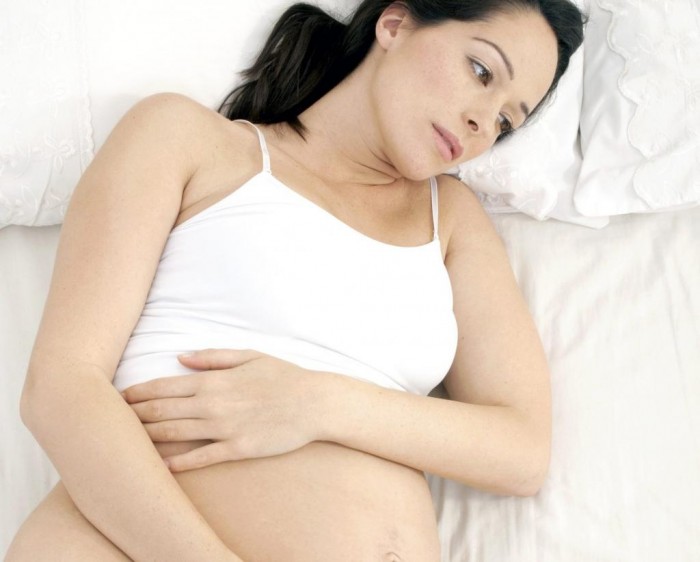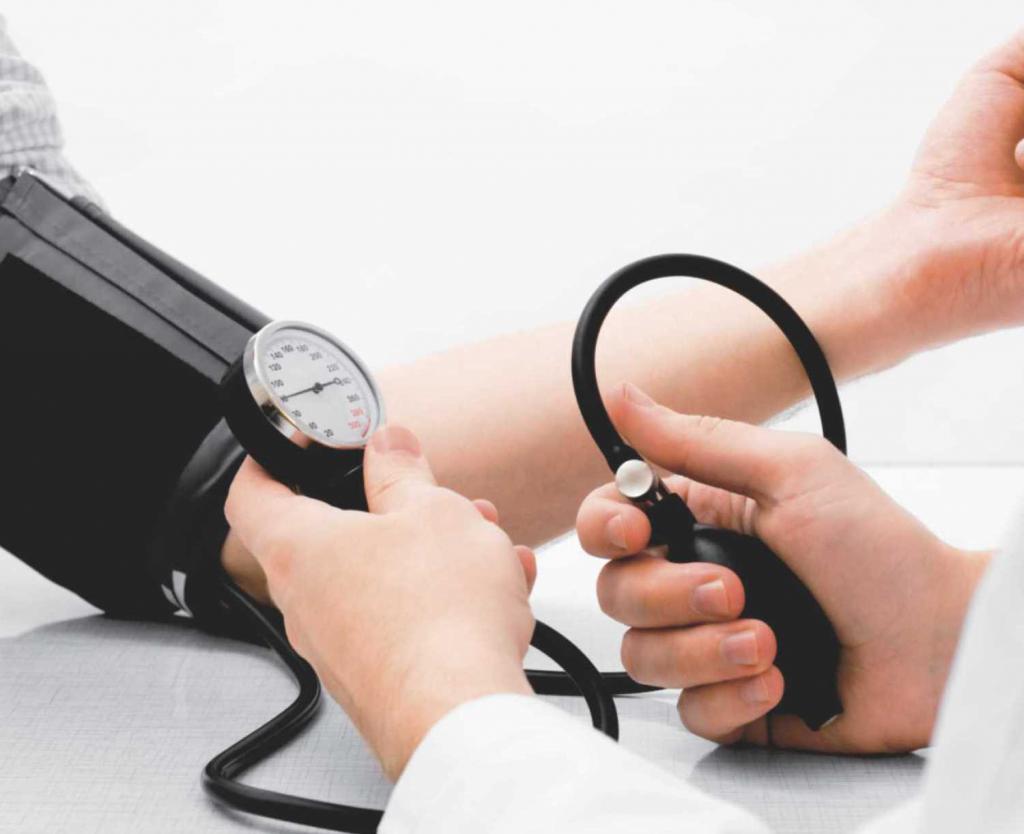
At each appointment in a female consultation, a pregnant woman is examined by a doctor and a nurse. So, the sister records changes associated with the growth of the child in the womb (for example, weight gain and an increase in the abdominal circumference), and also measures blood pressure. If its indicators exceed the norm, there is an occasion for concern.
The content of the article
- What pressure is considered increased during pregnancy?
- Symptoms of high pressure during pregnancy
- What is the danger of increased pressure during pregnancy?
- Increased pressure during pregnancy in the first trimester
- Increased pressure during pregnancy in the second trimester. Increased pressure during pregnancy in the third trimester
- Treatment of high pressure during pregnancy. High pressure tablets for pregnant women
- Pressure reducing pressure
- High pressure during pregnancy: tips and reviews
What pressure is considered increased during pregnancy?
Perhaps about the standard pressure rate of 120/80 mm Hg. Everyone heard. "With this, they fly into space." But modern doctors prefer not to talk about standards, as they consider the norm of pressure an individual feature of each person, depending on many factors, such as his height and weight, lifestyle, so on. They determine normal pressure not by any - by the middle indicator, but by a whole range: from 90/60 mm Hg. Art. up to 140/90 mm Hg. Art.
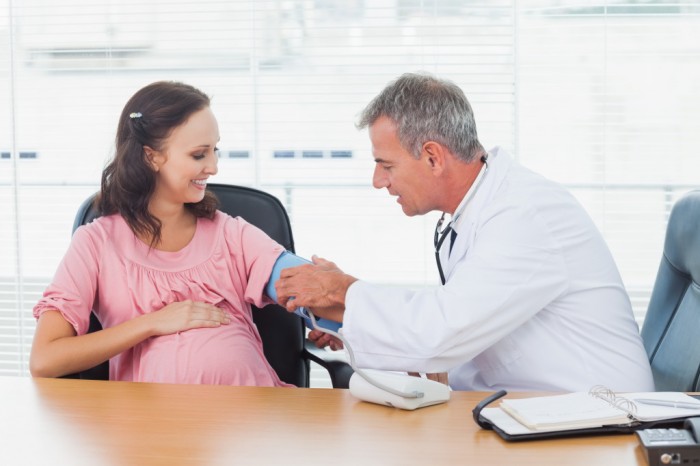
Pregnant pressure is measured at each appointment in the LCD.
Changes in the functioning of the woman’s body during pregnancy are grandiose. All its organs and systems of organs begin to work differently. An additional load lies on the heart and blood vessels: another, third, circulation circle is formed. The volume of blood in the body of the future mother increases. By the middle of pregnancy, it becomes more than 0.5 liters, closer to childbirth - by 1 liter.
The heart needs to pump this blood faster, so doctors consider the normal slight increase in blood pressure in expectant mothers.
Important: the pressure in pregnant women, which is located on the upper boundary of the norm and is 140/90 ml of RT. Art. do not cause anxiety among doctors
If its indicators are above this border, it is necessary to find out the reasons for this increase in pressure and take treatment.
Important: blood pressure is a variable indicator that can change within a few minutes. The pressure jump in the pregnant woman can be caused by stress (for example, the fear of taking the gynecologist or excitement for the child), climbing the steps (you must admit, pregnant in the third trimester, it is difficult to rise to the 5th floor of the clinic), drunk on the eve of coffee intake. To ensure the reliability of the measurement results, the pregnant woman must be calm and rested, drink invigorating drinks a few hours before receiving
Symptoms of high pressure during pregnancy
The reasons why the future mother has a lot of pressure. Some of them are not at all associated with the bearing of a child, hypertension could be present among a woman before, others are caused by the “interesting position” themselves. For example:
- Hypertension (arterial hypertension). Unfortunately, many women of childbearing age are burdened with chronic diseases, hypertension among which is especially common. The blame for this is genetic characteristics, incorrect lifestyle, stress, bad habits, many other factors. During pregnancy, the condition of a woman - hypertension can worsen
- Other chronic diseases. If the expectant mother has sore liver, kidneys, organs of the endocrine system, its increase in pressure is quite possible
- Diabetes of pregnant women. This diagnosis is almost always accompanied by hypertension
- Gestosis. But this pathology occurs just during and because of pregnancy. It is characterized by a discord in the work of many systems of the body of a pregnant woman and is deadly dangerous for both the child and the woman herself

Headache, nausea, noise in the ears - signs of hypertension in pregnant women.
As a rule, to suspect increased pressure in the future mother, it is obtained even before the measurement of this indicator, because the woman literally complains of poor health from the threshold. She finds the following symptoms:
- headache
- dizziness
- nausea
- noise in ears
- "Flies" before the eyes
- redness of the skin on the face and neck
Thematic video
What is the danger of increased pressure during pregnancy?
Arterial hypertension is dangerous for any person. For a woman, “in position” she is doubly dangerous, since she herself and the baby can suffer from the consequences of increasing pressure.
Complications of high pressure during pregnancy can be as follows:
- Violations in the work of organs and systems of women. The kidneys, heart, brain and other organs of a woman suffer from hypertension. Increased blood pressure is considered the first cause of heart failure, heart attack and stroke
- Abortion. Due to increased blood pressure, a miscarriage may occur or premature birth may begin
- Pathologies of pregnancy. They arise primarily in the blood flow system "mother - placenta - child." The baby can lack oxygen and nutrients, which is why its normal development is disturbed. Due to hypertension, a child can be born with a delay in intrauterine development, low weight or growth
- The detachment of the placenta. As a result of the placenta separation from the uterine wall, even before the birth of a child, a woman opens severe bleeding. It threatens her life. The child is in a state of hypoxia, he also needs to be saved
- Development of preeclampsia and eclampsia. If the cause of hypertension in pregnant women is gestosis, the development of a condition that is dangerous for her life is a hypertensive crisis, accompanied by pain in the area above the navel, vomiting, convulsions, loss of consciousness and even breathing stop

With significantly increased pressure, pregnancy can occur with pathologies.
Important: so that trouble does not happen, it is impossible to ignore high blood pressure during pregnancy
Increased pressure during pregnancy in the first trimester
If increased pressure was recorded in the first half of pregnancy, most likely a woman suffered from hypertension before her, or the chronic diseases of the kidneys, thyroid gland, adrenal glands, and so on were made of themselves.
Important: a slight increase in blood pressure in the first three months of pregnancy can be provoked by stress due to the new state of a woman and changes in her life associated with the bearing and imminent birth of a child. The situation must be kept under control, but perhaps it is resolved by itself as soon as a woman has toxicosis and she will get used to her new role

The cause of increased pressure in the first trimester may be stress.
Increased blood pressure due to any disorders in the functioning of the body of a pregnant woman can be dangerous for the child: pregnancy may break, or due to hypoxia, the development of pathologies in the baby is possible.
Increased pressure during pregnancy in the second trimester. Increased pressure during pregnancy in the third trimester
An increase in blood pressure from the second trimester of pregnancy is an alarming harbinger of gestosis.
Important: the reasons for the development of gestosis have not yet been established for sure. But it is known that the state characterized by disorders in the work of many organs and systems of the future mother most often occurs in those who before pregnancy or during the time did not suffer from hypertension, diseases of the kidneys, biliary paths, and endocrine systems
With gestosis, a spasm of blood vessels occurs, due to which blood circulation, its coagulation are disrupted. Tissues and organs resulting in oxygen and nutrients in insufficient quantities are obtained. In them, changes in a dystrophic nature begin to occur, sometimes irreversible up to death.
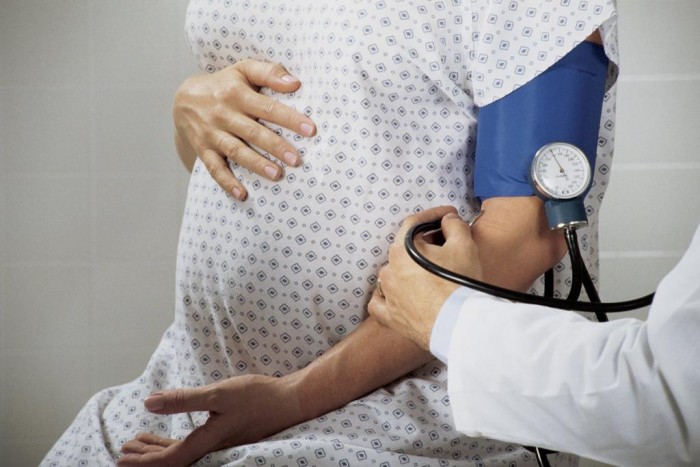
In the second and third trimester, increased blood pressure can be a harbinger of gestosis.
The first with gestosis are kidneys, heart and brain. The placenta also ceases to cope with the performance of his functions, as a result of which the child suffers from a lack of oxygen and nutrients.
In the first pairs, gestosis is manifested by swelling, then - renal failure, preeclampsia and eclampsia.
Important: the cause of increased pressure in the second and third trimesters of pregnancy can be much more banal than gestosis. This is overweight. So that the pressure does not increase, the woman needs to control his increase
Treatment of high pressure during pregnancy. High pressure tablets for pregnant women
Treatment of hypertension during pregnancy cannot pass through the template. First of all, the doctor finds out why the pressure increased in a particular pregnant woman, and only then choose drugs and give recommendations.
IMPORTANT: if the pressure of the future mother is 170/110 mm Hg. Art., it is urgently hospitalized, examined and treated already in a hospital
Usually, without drugs, women who are increased slightly, there are no other signs of dangerous conditions. To normalize it, it is often enough to normalize the mode of the day of the future mother and her nutrition.
If the pressure threatens a violation in the work of the woman and systems of a woman, a deterioration in uterine-placental blood flow, she is prescribed medications.

"The drug of choice" from increased blood pressure in pregnant women.
Safe drugs are tablets:
- Aegilok
- Nifedipin
- Labetalol
- Pipasole
- Dopgit
- others
Pressure reducing pressure
So that the pressure does not rise or normalize, a pregnant woman must consume products containing:
- ascorbic acid
- omega - 3 acids
- potassium and magnesium
- folic acid
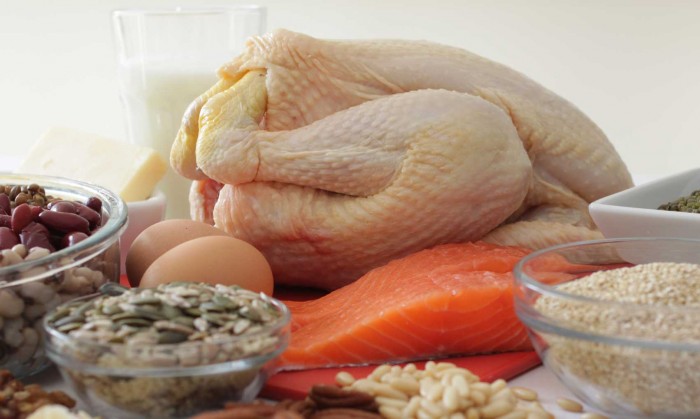
Pregnant people need protein products.
It:
- natural and high -quality dairy and sour -milk products
- vegetable oils
- fish and seafood
- croats and cereals
- bran
- vegetables, greens, fruits, berries and dried fruits
- low -fat meat
- egg yolk

Vitamins in vegetables and fruits will help control pressure.
High pressure during pregnancy: tips and reviews
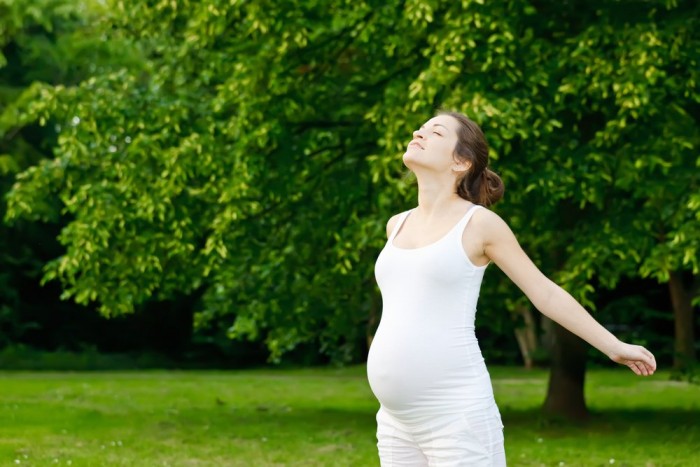
Inwardly calm and coordinated regime will help the expectant mother to keep pressure within the norm.
So that the pressure of the expectant mother does not increase, she needs:
- Observe the mode of work and rest of the night sleep should be at least 8 hours. If possible, the pregnant woman should sleep during the day, 1-1.5 hours. Overwork at work, overtime and work at night are contraindicated for it
- Abandon invigorating drinks - coffee and strong tea
- Limit the use of salt
- Avoid stress
- Control your weight
- Go for walks and engage in feasible sports

